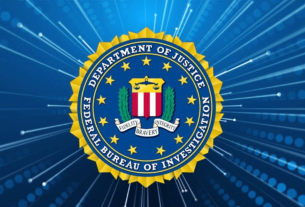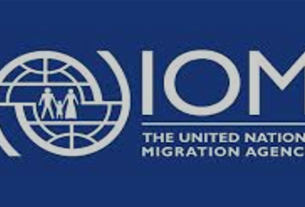Introduction
The use of surveillance tools, spyware, and other spying devices has become a contentious issue, particularly when employed by journalists, security personnel, and government officials. While these instruments are often justified under the guise of national security, investigative journalism, or crime prevention, the unwarranted and unethical application of such methods can lead to significant violations of privacy, abuse of power, and breaches of fundamental human rights. This article explores when the use of surveillance is legally permissible, the consequences of misuse, and the ethical obligations that govern their application.
Permissibility and Legal Framework
The use of surveillance tools, including spyware and spying gadgets, is generally regulated by national and international laws. In most democratic societies, any form of surveillance or data collection that invades an individual’s privacy is strictly limited and must adhere to legal processes, including obtaining warrants or judicial authorization.
- For Journalists: In investigative journalism, surveillance methods may be used when they serve the public interest, such as exposing corruption or criminal activity. However, ethical journalism requires that surveillance is carried out within the bounds of the law, with careful attention to avoid violating privacy rights without just cause. The Society of Professional Journalists (SPJ) Code of Ethics highlights the importance of minimizing harm and respecting privacy.
- For Security Personnel: Surveillance and espionage techniques used by law enforcement and security agencies are typically authorized through government-issued warrants. In these cases, surveillance should be limited to the scope defined by the warrant, and must be in pursuit of a legitimate law enforcement objective. The U.S. Foreign Intelligence Surveillance Act (FISA) and General Data Protection Regulation (GDPR) in Europe are examples of legal frameworks that govern such practices.
Determining Grounds for Use
The justification for deploying surveillance methods is grounded in establishing a legitimate need, often tied to preventing crime, terrorism, or safeguarding national security. The criteria for determining whether the use of these methods is justified vary depending on the jurisdiction, but generally include:
- Risk Assessment: There must be a credible threat or suspicion of illegal activity that warrants surveillance. This could include national security concerns, criminal investigations, or intelligence gathering related to organized crime.
- Authorization: In most cases, surveillance methods such as wiretaps or spyware require judicial authorization or oversight to ensure the protection of individual rights. The court must be convinced that the surveillance is both necessary and proportionate to the threat posed.
- Proportionality: The scale and scope of surveillance must be proportional to the crime or threat under investigation. This ensures that the surveillance does not unnecessarily infringe upon privacy rights or go beyond what is required to achieve the investigative goal.
Breaches of Human Rights and Ethical Violations
The line between legitimate use and abuse of surveillance tools is often blurred, particularly when those entrusted with power exploit these methods for personal gain, political advantage, or as a means of harassing or undermining others. Such abuses have far-reaching consequences, particularly when they lead to violations of a person’s fundamental human rights.
- Privacy Violations: Unwarranted surveillance or hacking into private communications without proper authorization constitutes a direct violation of privacy rights, as enshrined in international human rights agreements such as the Universal Declaration of Human Rights (UDHR) and regional treaties like the European Convention on Human Rights (ECHR).
- Reputation Damage: Individuals subjected to illicit surveillance may face public humiliation, loss of trust, and damage to personal or professional relationships. Business owners who fall victim to such abuses may lose critical trade secrets, business leads, and competitive advantage due to unauthorized access to sensitive information.
- Harassment and Abuse of Power: Security personnel or journalists who misuse surveillance tools for personal vendettas, corporate espionage, or as a means of blackmail or extortion are abusing their professional responsibility. Such practices undermine the integrity of their positions and can result in personal enrichment at the expense of others.
Consequences and Legal Penalties
When individuals misuse surveillance tools, the legal consequences are severe. Depending on the jurisdiction, perpetrators may face penalties that range from criminal charges to civil suits. Potential consequences include:
- Criminal Charges: In many cases, unlawful surveillance can lead to charges of wire fraud, identity theft, or even treason if the breach involves national security. For instance, individuals found guilty of unauthorized surveillance or hacking could face prison sentences, heavy fines, and permanent bans from government or security-related employment.
- Civil Litigation: Victims of unlawful surveillance may seek compensation through civil lawsuits, especially if the breach resulted in financial loss, reputation damage, or physical harm. In some cases, individuals may receive damages for emotional distress, loss of business, and violation of privacy.
- Termination and Disbarment: Journalists, security personnel, and government officials found guilty of professional misconduct, including the illegal use of surveillance tools, can face disbarment from their professions, loss of security clearance, or dismissal from employment.
- Public Scrutiny and Loss of Trust: In addition to legal penalties, perpetrators of such abuses often face public backlash, loss of credibility, and the erosion of public trust. When state actors, journalists, or private investigators are caught misusing surveillance, the damage to their reputation can be long-lasting.
Conclusion
While surveillance technologies, spyware, and other spying gadgets can play a crucial role in maintaining national security and exposing criminal activity, their misuse for personal gain or as a tool for oppression is a serious violation of both ethical standards and legal rights. As surveillance becomes more pervasive, it is imperative that individuals in positions of power uphold the principles of justice, fairness, and transparency. Legal frameworks and professional codes of conduct must be enforced to prevent abuses and ensure that these tools are used only when necessary and proportionate to the legitimate goals of justice and public safety. Those who misuse surveillance for personal or unethical purposes must be held accountable, both legally and professionally, to safeguard the fundamental rights of all individuals.
References
- Society of Professional Journalists (SPJ) Code of Ethics – SPJ Code of Ethics
- Universal Declaration of Human Rights (UDHR) – UDHR Text
- European Convention on Human Rights (ECHR) – ECHR Text
- U.S. Foreign Intelligence Surveillance Act (FISA) – FISA Details
- General Data Protection Regulation (GDPR) – GDPR Overview
Image by Muhammad Saad from Pixabay



